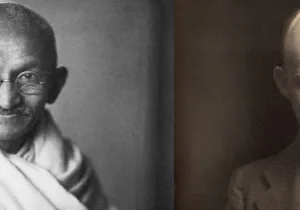Though nations are never completely inwardly harmonious, tensions over COVID-19, religious liberty, abortion, racism, climate change and refugees are increasingly tearing at the fabric of Western societies. Polarization can occur within families, among colleagues, across political and social movements as well as religious groups and within companies and organizations. Not only do politicians seem at a loss for how to address the problem, but the rhetoric they sometimes employ tends to make matters even worse. Within the resulting us-versus-them mentality, contradictions are sharpened, and the extremes become completely alienated from one another.
While polarization is hard to combat, it would be wrong to see it as fate. If anything, societies seem to be in need for more fundamental guidance when trying to confront polarization. Could Christian realism offer a remedy? We do not pretend that Christian realism prescribes direct measures for tackling polarization. Still, we suggest that Reinhold Niebuhr’s thought and life story embodies a fundamental approach that can help us address the issue sensibly. Concretely, we propose the following ten Niebuhrian imperatives.1
1. Combine idealism with realism
It was important to Niebuhr to ground his ideals for a good society in the practical: “For every tree is known by its fruit.” You can dream up all kinds of ideas, but you will also have to demonstrate that they are applicable to the world as it is today. “One of the most prolific sources of self-deception,” Niebuhr argued, was “the proclamation of great ideals and principles without any reference to their relation to the issues of the day.”2 To proclaim from one’s ivory tower what society should look like was not Niebuhr’s style. He wanted to make ideals concrete for the daily reality of people, whether they worked for Henry Ford or as soldiers. Niebuhr stretches a long rope between his high, sometimes heavenly, ideals and earthly, brutal and broken everyday reality. On the one hand, he dares to say that the sacrificial love of Christ is the example for all of us, but he also dares to connect it with the question: should we use nuclear weapons in international conflicts? Such statements did not always help his popularity, but for Niebuhr popularity was no criterion for the correctness of his views.
Many contemporary debates also involve conflicting high ideals. High ideals are good, but they ultimately must be tested for their practical effect. As soon as that happens, these ideals must become concrete and practical, which often reveals existing contradictions as not nearly so hard or absolute. People may well have more in common than they thought.
2. Beware of ideological blindness
Niebuhr lived in a time dominated by ideologies like fascism, communism and liberalism. Recognizing the negative consequences of the rise of the automotive industry under Henry Ford early in his pastoral career in Detroit, Niebuhr also became aware of the ideological blindness that can accompany free-market thinking. He later saw that blindness also reflected in communism. Ideological blindness occurs when people have come to “believe” in their own social and political views so strongly that they must realize them at all costs. They place their entire heart and soul into trying to realize their ideology in the here and now. In these polarized and heated discussions, people can become blinded by their own ideological “correctness.” It is important that people are aware of their capacity for self-deception as they pursue their ideals.
3. Be self-critical
This is partly related to the previous imperative. After all, how can you be sure that you are not ideologically blind yourself? An essential characteristic of ideology is blindness to your own blindness. By reading Karl Marx and other “masters of suspicion,” Niebuhr learned to approach good intentions with healthy mistrust. Niebuhr was acutely aware that his own thoughts and actions could be the product of the social privilege he enjoyed or the interests he sought to defend. Being self-critical was his way of coping with this problem. For him, self-criticism was also the hallmark of true religion. A worldview or religion which lacks self-criticism is intrinsically dangerous because it threatens to devolve into an ideology; an ideology being a closed system of assumptions that cannot be altered in accordance with changing facts on the ground. Thus, for Niebuhr, humility was indispensable for the sake of self-criticism.
Niebuhr was not only critical of his own thinking, but also of America and its self-image. Time and again, he held up the mirror to his own nation: in all their philosophical pursuits, they all too easily believed that they were on the right side of history, no longer recognizing their own foibles. Niebuhr considered it his task to keep pointing this out; to keep on “speaking truth to power.” Niebuhr was aware that human reason can easily be the vehicle for the passions and the will. In other words, one can argue a case very rationally while what ultimately determines one’s conclusion is not rational itself. If people were more self-critical, they would not so easy demonize others. Indeed, they would be more prone to recognize flaws in themselves if they allowed others to hold up the critical mirror.
4. Acknowledge the presence of evil in yourself as well as in others
Niebuhr was, more than anyone else, aware of the human propensity for evil. At the same time, he also had high expectations for man’s creative potential. He only noticed his idealism and attempts to understand social issues were insufficient if he did not simultaneously consider the view that evil is ingrained in man. This Christian notion was the great equalizer for him. The fact that all have the capacity for great evil as well as good ensures none can be considered morally elevated; doing so could already be a sign or cause of evil. If you consider yourself better than those you disagree with, evil is already creeping in. That in the end we all inevitably get our hands dirty by doing more or less evil should make us humble in the face of the evil other people do or cause. This does not equate to morally equivocating, but rather that we should always judge others with our own fallenness in mind.
5. Dare to distinguish between greater and lesser evil
Niebuhr warned against issuing moral judgments from comfortable, safe positions where the consequences of those judgments are ultimately only theoretical, not material, for the judgers. All difficult choices between good and evil are not black or white. Human beings are actually constantly concerned with how to avoid evil by choosing the lesser of two evils. This necessitates action over inaction when acting will lead to failure but inaction will lead to yet even worse tragedy. Niebuhr offers tools for those situations by distinguishing between the bad and the worse. For example, how can the idea of forgiveness and grace provide room for action when it inevitably involves failure? And are there not degrees of wrong behavior? An opponent is not necessarily the ultimate evil, although they can certainly act morally wrongly.
6. Recognize elements of truth in the views of others
For Niebuhr, it was paramount that most of the people he disagreed with represented at least some truth. For him, this was related to the idea that his interlocutors had something to say as fellow human beings. This made Niebuhr not only open and curious toward others, but also involved. This way he could disagree with pacifists yet give them credit for the elements of truth in their position. A possible consequence of Niebuhr’s openness was that, in many areas, his thinking is a synthesis of the thoughts of others. Since he also dealt with many subjects, there is something of interest in Niebuhr for everyone. Admittedly, the disadvantage of this is that very different people have considered him one of their own: conservatives, Christian socialists or Christian revolutionaries and liberals. Yet, recognizing elements of truth in the positions of others is something that can help counter polarization.
7. Acknowledge the complexity and mystery of human nature
Niebuhr has become known, among other things, for his anthropology, which he elaborated in the two volumes of The Nature and Destiny of Man. His view of humanity goes far beyond the simple statement that “most people are good,” as Dutch author Rutger Bregman argues in his bestseller Humankind: A Hopeful History.3 Niebuhr’s image of human beings is rich because of the way he values humans; that is why his vision of humanity is broadly appealing. On the one hand, he recognizes that humans can rise to great heights in their strivings and creativity. On the other, he shows how much evil man is capable of and can surrender to. The creative and destructive tendencies of people both have a place in Niebuhr’s thinking; they are often intertwined and human motives are therefore mixed. This saves Niebuhr from one-sided assumptions about human behavior and superficial explanations of social issues. Human beings are complex, which is why social issues and their solutions are too. Even a little of this thinking makes all too superficial schemes and interpretations of social issues impossible. The acknowledgment of this fact also helps to prevent a polarized worldview.
8. Avoid moralism
Recognizing the irony of history, as well as the complexities of evil and of human nature, Niebuhr was critical of attitudes of “moralism.” Moralism is lecturing others on the basis of an imagined superiority, which differs from making a moral judgment as such. The latter was precisely what Niebuhr tried to do. He wanted to discern what was at stake and sometimes felt he had to voice a strong opinion on political matters or even condemn certain policies. However, because he knew how complex evil was and what his own part in it could be, reacting moralistically was out of the question for him. A good recent example of this is how Barack Obama, when still a presidential candidate, reacted to radical statements by his former pastor Jeremiah Wright: “That anger is not always productive; indeed, all too often it distracts attention from solving real problems; it keeps us from squarely facing our own complicity within the African-American community in our condition. (..) We can dismiss Reverend Wright as a crank or a demagogue. (…) We would be making the same mistake that Reverend Wright made in his offending sermons about America – to simplify and stereotype and amplify the negative to the point that it distorts reality.”4 In polarized debates, moralism can be an obstacle, because it suggests that one side should be allowed to condemn the other side based on its own moral superiority.
9. Communicate in a language comprehensible to others
Niebuhr was a theologian and philosopher. Still, with his analyses, he has managed to appeal to a wide audience to this day. This is partly because Niebuhr succeeded, as Habermas calls it, in meeting the “translation requirement.”5 This means that you make an effort to convert your ideas into words and ideas that are understandable to other persons and perhaps even convincing to them. Niebuhr was really successful in this regard. Although he was a theologian, there were also many non-Christians who were attracted by his ideas, calling themselves “atheists for Niebuhr.” If you do not communicate in a way that is understandable to others, you will stay in your own bubble, without being able to reach the other person – which is precisely what reinforces polarization.
10. Be open to the possibility of having to adjust your opinions
In his reflections, Niebuhr focused on everyday reality without making his thinking dependent on it. He considered it essential to examine his own stance and viewpoints. Do they match with reality? Do they lead to a better world? If not, their assumptions may not be correct. At the same time, he also dared to come up with ideas based on Scripture and the Christian tradition, because they contain eternal truths about mankind, history, and ethics. Examining ideas because the empirical reality “contradicts” you is not only something that scholars are trained to do, but also something that ordinary people, believers or non-believers, should practice. Otherwise, one becomes dogmatic and rigid, while changing one’s viewpoint when the facts give rise to it is essential to reduce polarization.
Taken together, these ten Niebuhrian imperatives are immensely valuable for combatting polarization in our societies. They help us develop openness and curiosity towards those other people who may not be the opponents they were initially perceived as. At the same time, they help us cultivate the critical edge needed to make distinctions between what’s really valuable and what’s not, between what is to be defended, tolerated and resisted. In all, they represent the practical wisdom Niebuhr cherished so highly.
[1] This article is a slightly adapted translated version of one section of the authors’ introduction to the book Jeremy L. Sabella, Hoop in tijden van verdeeldheid. Het levensverhaal van Reinhold Niebuhr en zijn lessen voor de wereld (Hope in Times of Division: The Life Story of Reinhold Niebuhr and His Lessons for the World.) Introduced and translated into Dutch by Simon Polinder and Menno R. Kamminga (Almere: Parthenon 2022).
[2] D.R. Davies, Reinhold Niebuhr: Prophet from America (London: James Clarke & Co, 1948),21.
[3] Rutger Bregman, Humankind: A Hopeful History (New York/Boston/London: Little, Brown and Co, 2020).
[4] Barack Obama, “A More Perfect Union,” March 18th, 2008, https://www.npr.org/templates/story/story.php?storyId=88478467&t=1645787394342.
[5] Jürgen Habermas, “Religion in the Public Sphere,” European Journal of Philosophy 14 (2006) 1: 10-16.








 Sponsor a student for Christianity & National Security 2024
Sponsor a student for Christianity & National Security 2024